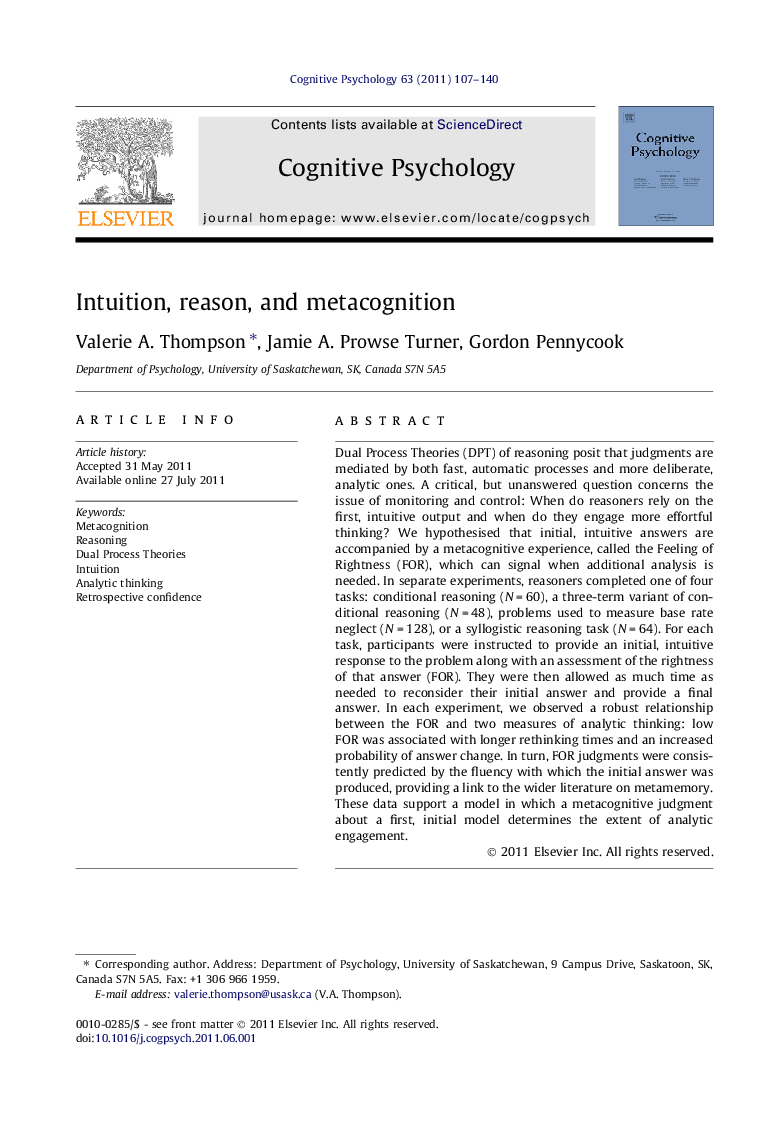| کد مقاله | کد نشریه | سال انتشار | مقاله انگلیسی | نسخه تمام متن |
|---|---|---|---|---|
| 916955 | 919012 | 2011 | 34 صفحه PDF | دانلود رایگان |

Dual Process Theories (DPT) of reasoning posit that judgments are mediated by both fast, automatic processes and more deliberate, analytic ones. A critical, but unanswered question concerns the issue of monitoring and control: When do reasoners rely on the first, intuitive output and when do they engage more effortful thinking? We hypothesised that initial, intuitive answers are accompanied by a metacognitive experience, called the Feeling of Rightness (FOR), which can signal when additional analysis is needed. In separate experiments, reasoners completed one of four tasks: conditional reasoning (N = 60), a three-term variant of conditional reasoning (N = 48), problems used to measure base rate neglect (N = 128), or a syllogistic reasoning task (N = 64). For each task, participants were instructed to provide an initial, intuitive response to the problem along with an assessment of the rightness of that answer (FOR). They were then allowed as much time as needed to reconsider their initial answer and provide a final answer. In each experiment, we observed a robust relationship between the FOR and two measures of analytic thinking: low FOR was associated with longer rethinking times and an increased probability of answer change. In turn, FOR judgments were consistently predicted by the fluency with which the initial answer was produced, providing a link to the wider literature on metamemory. These data support a model in which a metacognitive judgment about a first, initial model determines the extent of analytic engagement.
► We substantiate a model of metacognitive monitoring and control in reasoning and decision-making.
► The fluency of generation determines the strength of the Feeling of Rightness for a decision.
► The strength of the Feeling of Rightness determines degree and type of subsequent analysis.
► Reasoning biasses may be confidently held because they are fluently retrieved.
► We integrate literatures on metacognition, confidence, and Dual Process Theories of reasoning.
Journal: Cognitive Psychology - Volume 63, Issue 3, November 2011, Pages 107–140